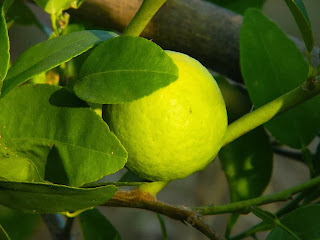I thought I would give a few snapshots,
in words and pictures, of our Christmas here in the village.
On Christmas Eve we were visited by the
church children, who were visiting all the church leaders to bring Christmas greetings. They marched in, sat down, sang to us, and then
marched off again. They made a colourful picture!
On Christmas morning our kids had
stockings. The boys opened their small presents and then enjoyed
helping their sister to open hers. We then took our traditional family Christmas one-take self-timer photo.
We went to church at 9, though we knew
it would start a bit later because of Christmas, so sat outside for a
while, greeting people as they arrived. Eve isn't a big fan of church
at the moment, as it is her nap-time and she doesn't like sitting
still. So I just stayed for half an hour of singing at the beginning,
but it was good to be worshipping with fellow Christians to celebrate
Jesus' birth!
We had guineafowl for Christmas dinner,
with roast and green veg, and gravy and bread sauce.
After the afternoon nap, there were
more presents, and then an outing to watch the church playing a
friendly football match. You might spot some familiar heads among the
spectators!
Finally we started a new tradition of a
family video night, watching Shrek 3, which Benjy had had for
Christmas. It is rare that we all sit down together to watch
something, and it was fun! (Eve was already in bed, she'll have to
wait a few years to be included!)



































